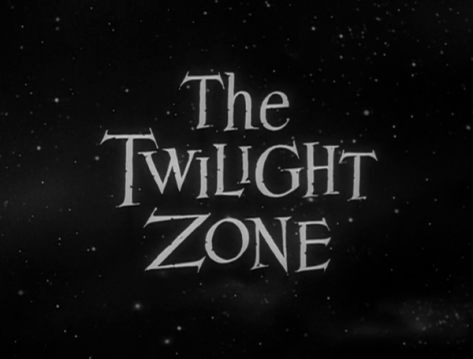What goes down sometimes comes up! The sensational new sci-fi/surreal anthology, The Twilight Zone, started its sophomore season with a sharp decline in quality from its debut run of episodes; but, I'm happy to report that the quality of last month's batch was pretty good.

The batch started out with a subtle bang with The Trouble with Templeton, in which an aging star of the stage seeks solace in the too-brief sweet time of his young adulthood. It is both kin and different from the other episodes that have essayed this territory: A Stop at Willoughby or Walking Distance. Though the 1920s Templeton returns to look as he remembers, particularly the lovely form of his long-dead wife, neither his bride nor his best friend seem happy to see him. In fact, they practically chase the old man away. But in one poignant moment, it is revealed that it was all an act; they were pushing him back for his own good, so he could live out his life with vigor rather than remorse. A bit long in the first act, but worthy watching. Four stars.

A Most Unusual Camera is the clunker of the four. A trio of none-too-bright criminals pick up a vintage camera in a heist, one that takes pictures a few minutes into the future. They quickly hatch a plan to turn it to profit–by snapshotting of the results board at the horse racetrack and betting before the end of the match. Their winning streak is foiled by a greedy bellboy, and they all four end up dead in one way or another. Unsubtle and rather grating. Two stars.

The next in what was originally a consecutively produced batch of video-taped episodes is Night of the Meek. It's a Christmas episode, about a dipsomaniacal Santa who ends up about as down on his luck as one can imagine…until his wish is granted: to be a true Holiday gift giver, providing all the folks he knows with what they most desire for Christmas. I was ready to dislike this episode as video-tape cripples the cinematography, and I tend to dislike Christmas-themed fare on principle. But it was actually heart-warming and, more importantly, my daughter quite enjoyed it. Three stars.

Day-before-yesterday, we wrapped all cozy in blankets, turned on the space heater, and tuned in for the latest episode of The Twilight Zone. It didn't look promising, this somber piece about a squalid Old West town in which a fellow was locked up, waiting to be hanged for running over and killing a little girl. He had been drunk, you see, filled with the sadness of a village wasting away. The prisoner is tormented by a vulgar snake-oil salesman, who is run out of the jail by a clearly sympathetic sheriff. When the prisoner's father pleads for his boy's life, to no avail, the peddler offers for 100 pesos a bag of "magic dust" that, he claims, will warm the hearts of the lynch mob so that they spare the penitent killer. Of course, it's just a bag of dirt. The young man is sent through the gallows with the rope around his neck…and yet, he is spared when the noose (ironically, also an item sold by the peddler) snaps. The parents of the deceased decide the prisoner has suffered enough. Was there any magic in this episode? Or did the heartsick lawman give the rope a little fraying before use?
It's a poignant episode with some of the best writing I've seen, both in the bumper narration and in some of the dialogue. This was another one we expected to dislike, but it was surprisingly gripping. Four stars.

If things are looking up in the New Year for television, they are looking decidedly grim in the world picture. On New Year's Eve, several North Vietnamese battalions charged into the neighboring Southeast Asian country of Laos. There is concern that this could turn into a full-fledged proxy war between the Superpowers; America is actively supporting the Laotians, and Soviet planes have been spotted dropping supplies for the Communist Vietnamese troops.
We avoided a catastrophe during the Suez crisis, when neither the USA nor the USSR was willing to intervene for their clients. That is one of the reason the "Doomsday Clock" was turned back last year from two to seven minutes. Perhaps the Federation of Atomic Scientists, the keepers of that macabre timepiece, were a bit hasty…
See you in a few with cheerier news, I hope.








































